We now have access to various diagnostic instruments to evaluate our health and find potential problems thanks to medical breakthroughs. The Angiogram Test, a potent imaging tool used to see blood vessels in the body, is one such diagnostic process. If you are looking for the best Angiogram Test Centre Near Me or a Top Angiogram Test Clinic Pimlico, visit North Queensland Cardiac Clinic in Pimlico, Australia.
North Queensland Cardiac Clinic has expert cardiologists, Dr Dharmesh Anand and Dr Raibhan Yadav and other professionals who can conduct an accurate and safe Angiogram Test. Reach out to our Top Angiogram Test Clinic, Pimlico, for the best quality cardiac diagnostic tests. This blog will discuss some important things about the Angiogram Test.
Let’s dive in:-
- What is an Angiogram Test?
- When is an Angiogram Test Recommended?
- How is the Angiogram Test Performed?
- Types of Angiogram Tests
- Benefits of the Angiogram Test
What is an Angiogram Test?
A diagnostic process called an Angiogram Test, also known as an angiography or arteriography, uses X-rays and a specialized dye called a contrast agent to see blood arteries. In order to diagnose diseases affecting the heart, brain, legs, and other parts of the body, it enables medical practitioners to spot blockages, narrowing, or irregularities in the blood vessels.
When is an Angiogram Test Recommended?
If you exhibit symptoms that point to a vascular or cardiac problem, your doctor could advise you to undergo an angiogram test. These signs may include neurological problems, limb pain, shortness of breath, and chest pain. Additionally, cardiologists can suggest this test to monitor and evaluate patients with a history of heart disease, stroke, or peripheral artery disease.
How is the Angiogram Test Performed?
Technicians place a short, flexible tube known as a catheter into a blood vessel during an angiogram test through a tiny incision, typically in the wrist or groin. They insert the catheter carefully via the blood vessels to reach the area of interest. Following that, professional technicians administer a contrast dye through the catheter to enhance the appearance of the blood vessels on X-ray pictures. Usually, they use X-ray imaging to guide the procedure while administering a local anesthetic.
Types of Angiogram Tests:
Technicians perform Angiogram Tests on various parts of the body, depending on the area of concern. Some common types include:
Coronary Angiogram:
Focuses on the heart’s blood vessels to assess coronary artery disease.
Cerebral Angiogram:
Visualizes blood vessels in the brain to detect abnormalities like aneurysms or strokes.
Peripheral Angiogram:
Evaluates blood vessels in the legs, arms, or other body parts to assess circulation problems.
Pulmonary Angiogram:
Examines blood vessels in the lungs to identify blood clots or other pulmonary issues.
Benefits of the Angiogram Test:
The Angiogram Test offers several benefits that make it a valuable diagnostic tool:-
- Doctors can accurately diagnose and localize vascular and cardiac issues by providing detailed images of blood vessels.
- The test results help healthcare professionals determine the most appropriate treatment plan for the patient’s condition.
- Compared to traditional surgical procedures, the Angiogram Test is minimally invasive, reducing the risk of complications and promoting quicker recovery.
Conclusion
The Angiogram Test is a crucial diagnostic procedure to identify blood vessels and evaluate the condition of the heart and veins. It’s critical to get the best quality care at a Top Angiogram Test Clinic Pimlico, like North Queensland Cardiac Clinic in Pimlico, Australia, if your cardiologist has advised you to get this test or exhibit symptoms that point to vascular problems. Trust in the knowledge of our licensed medical professionals, Dr Dharmesh Anand and Dr Raibhan Yadav. Cease your search for an Angiogram Test Centre Near Me with us today.

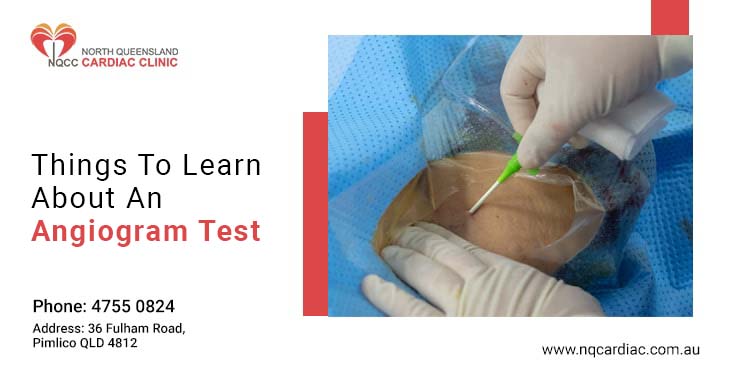
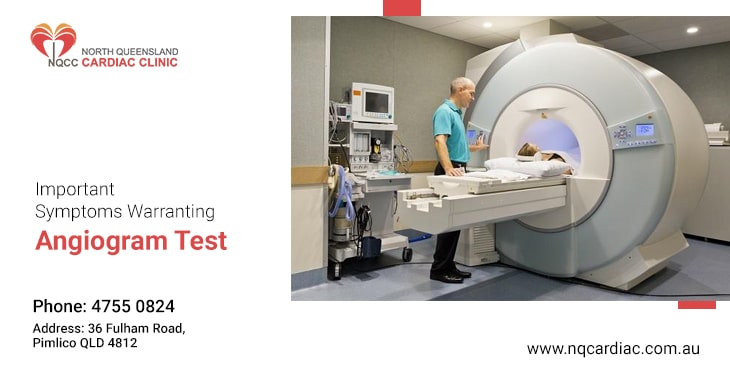
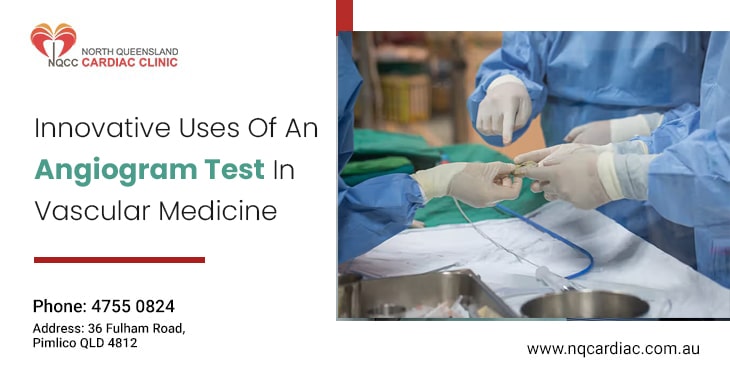
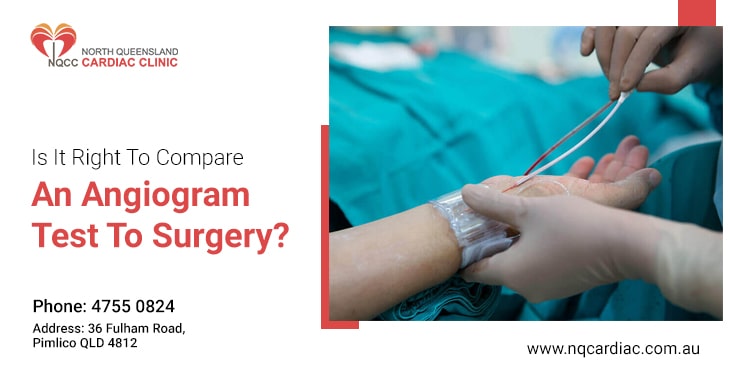

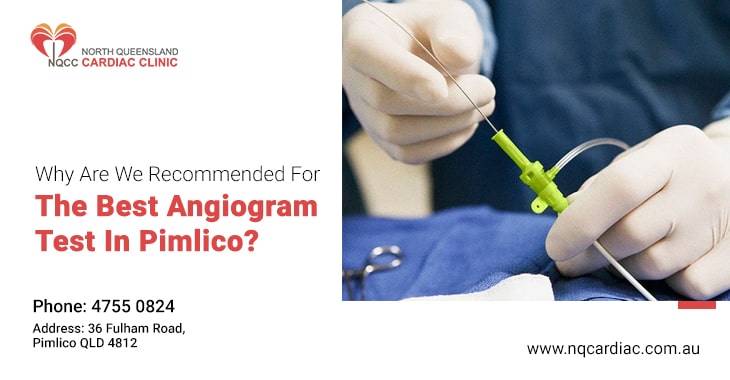
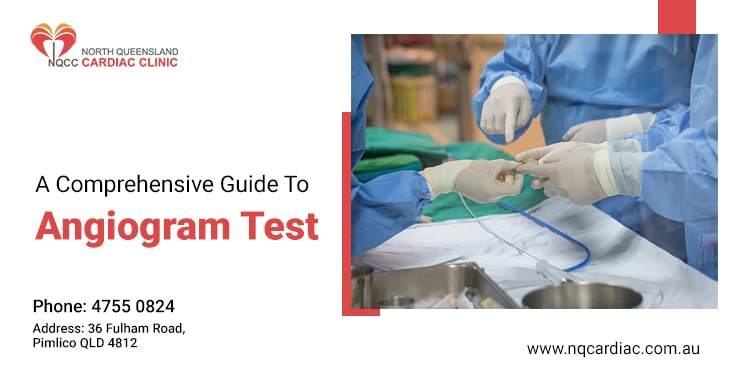
Recent Comments